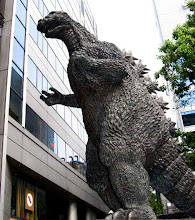


In his personal efforts to control Venezuela´s economy, the president of Venezuela, Hugo Chavez, has enacted a new law to expropriate the provision of goods and services related to the Oil Industry. The law is termed, Organic Law that Reserves to the State Goods and Services related to the primary activity of the Oil Industry.
The law was quickly prepared by the National Assembly and last night was enacted by Hugo Chavez himself. What is really important about the law is that all activities involving goods and services related to the Oil Industry will now be owned by the State in what Chavez calls "social property" or in spanish "propiedad social". The law provides that the expropriated shareholders will be paid book value for their shares and permits the avenue of public bonds.
And what is social property, is it the same treatment as public goods destined for public utility, like say public parks, benches and plazas, or is Chavez reffering to public goods destined for private utility, such as the huge network of private companies owned by the State, such as PDVSA (Oil), Pequiven (Petrochemicals), CVG (Steel, Aluminum), the Venezuela Cement Corporation? Chavez has a very confused and troubled head...
Chavez wants to totally control Venezuela´s economy and his advisers have come up now with the idea that all the Oil contractors in Venezuela should be expropriated and its assets and employees transferred to state owned PDVSA. Lets consider that the Oil contractors in Venezuela and even more in the State of Zulia significantly contribute to the local economy. What we are seeing is just a revenge against privately own contractors, most of them owned by European families with highly technical and ethical corporate histories, to wipe them out of the oil economic scene.
I personally think that Hugo Chavez has a personal and hidden agenda against the State of Zulia and the city of Maracaibo.









